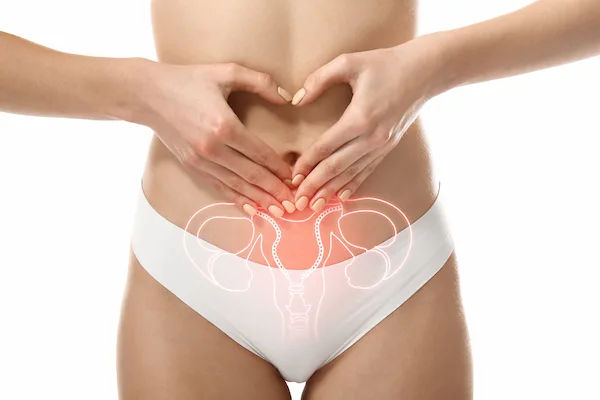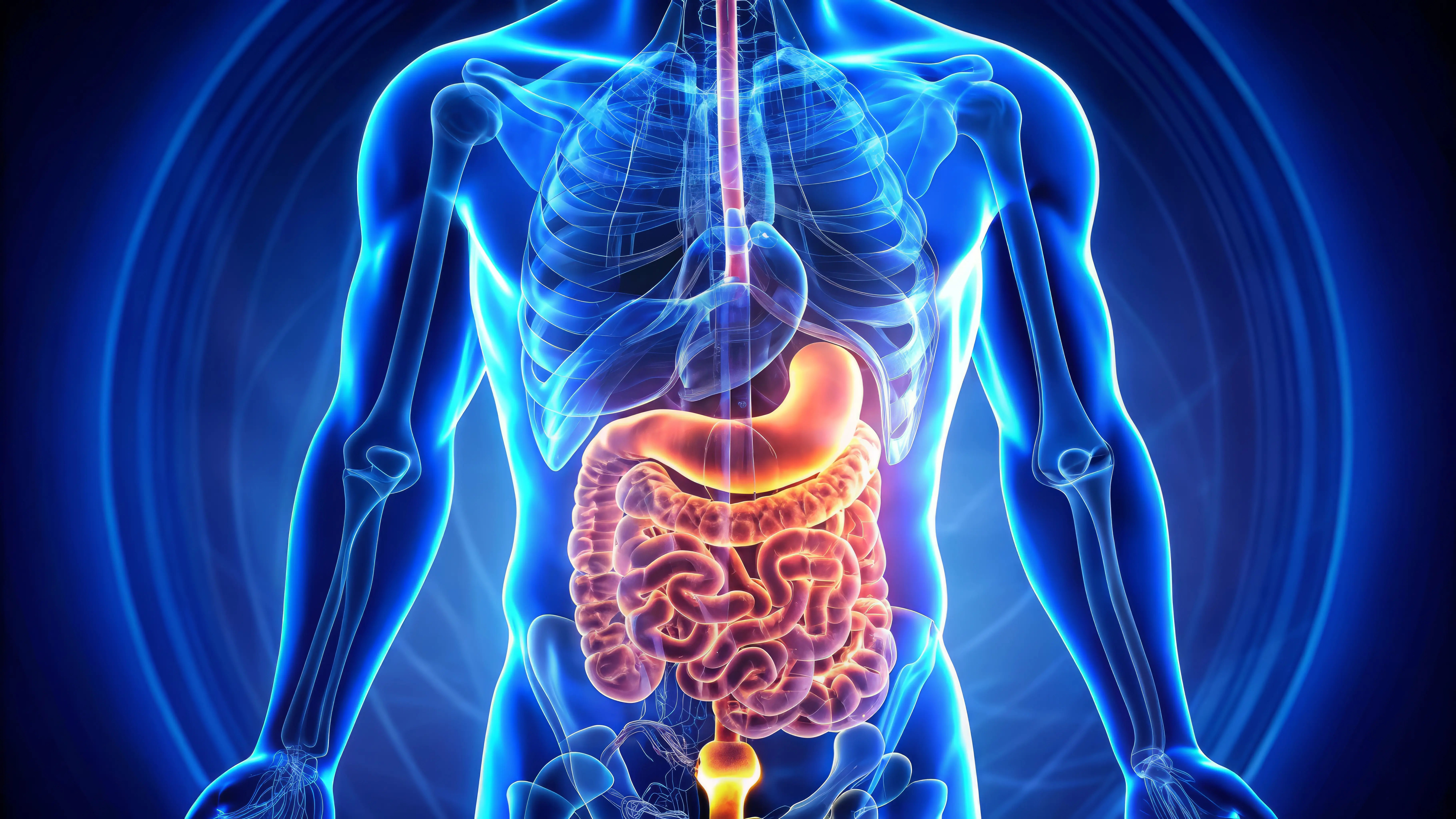Recovery Time After Robotic Hysterectomy
Learn about the recovery time after robotic hysterectomy, including what to expect during healing, tips for a smoother recovery, and how this minimally invasive surgery supports faster return to daily activities.

Written by Dr. Rohinipriyanka Pondugula
Reviewed by Dr. D Bhanu Prakash MBBS, AFIH, Advanced certificate in critical care medicine, Fellowship in critical care medicine
Last updated on 13th Jan, 2026

Introduction
Undergoing a robotic hysterectomy can be a significant step toward better health, especially for women dealing with conditions like fibroids, endometriosis, or cancer. While this minimally invasive surgery offers faster recovery than traditional methods, it’s natural to have questions about the healing process. In this article, we’ll guide you through what to expect during recovery, how long it typically takes, and tips to help you heal smoothly.
What is a Robotic Hysterectomy?
A robotic hysterectomy is a surgical procedure where the uterus (and sometimes the cervix, ovaries, or fallopian tubes) is removed using robotic-assisted technology. This method involves small incisions, precise movements, and a quicker recovery compared to open surgery.
Why is Recovery Faster with Robotic Hysterectomy?
Reasons for faster recovery with robotic hysterectomy are:
Smaller incisions mean less pain and scarring.
Reduced blood loss and lower risk of infection.
Shorter hospital stay (often just 1 day).
Recovery Timeline After Robotic Hysterectomy
Recovery varies for each person, but here’s a general timeline:
1. First 24-48 Hours (Hospital Stay)
You may feel groggy from anaesthesia.
Mild pain and discomfort are normal (managed with prescribed medications).
Walking gently is encouraged to prevent blood clots.
2. First 1-2 Weeks (Early Recovery at Home)
Rest is key. Avoid heavy lifting, bending, or strenuous activities.
You may experience:
Mild abdominal pain or bloating.
Light vaginal spotting (use pads, not tampons).
Fatigue—listen to your body and nap if needed.
Short walks help circulation and prevent stiffness.
3. Weeks 3-4 (Gradual Improvement)
Most women feel significantly better.
You can slowly resume light activities (e.g., desk work, short outings).
Avoid sex, swimming, or intense workouts until cleared by your doctor.
4. Weeks 5-6 (Near Full Recovery)
Many women return to normal routines (with doctor’s approval).
Energy levels improve, but some may still feel occasional tiredness.
5. Beyond 6 Weeks (Full Recovery)
Most restrictions are lifted, but full internal healing may take a few months.
Follow-up visits ensure everything is healing well.
Factors Affecting Recovery Time
Some of the factors affecting recovery time are as follows:
Age & overall health – Younger, healthier women may heal faster.
Type of hysterectomy – Removing only the uterus vs. ovaries/cervix affects recovery.
Pre-existing conditions (e.g., diabetes, obesity) may slow healing.
Complications (rare but possible, like infections or bleeding).
Consult Top Specialists for Personalised Tips
Tips for a Smooth Recovery
Some of the tips for smooth recovery are:
1. Follow Your Doctor’s Instructions
Take prescribed medications.
Attend follow-up appointments.
2. Rest, But Stay Gently Active
Avoid bed rest—short walks prevent blood clots and aid digestion.
No heavy lifting (over 10 lbs) for at least 6 weeks.
3. Eat a Nutrient-Rich Diet
High-fibre foods (fruits, veggies, whole grains) prevent constipation.
Lean proteins (chicken, fish, beans) support tissue repair.
Stay hydrated!
4. Manage Pain & Discomfort
Use a heating pad for cramps.
Over-the-counter pain relievers (if approved by your doctor).
5. Watch for Warning Signs
Contact your doctor if you experience:
Heavy bleeding (soaking a pad in an hour).
Fever (over 101°F).
Severe pain, swelling, or foul-smelling discharge.
When Can You Return to Work?
Timeline for returning to desk work is:
Desk job: ~2 weeks (if comfortable).
Physical job: ~4-6 weeks (or as advised).
A hysterectomy can bring mixed emotions, relief, sadness, or hormonal changes (if ovaries were removed). Talking to a counsellor or support group can help.
Conclusion
Recovery after a robotic hysterectomy is generally quicker than traditional surgery, but patience is still key. Listen to your body, follow medical advice, and give yourself time to heal properly. If you have concerns or need personalised guidance, Apollo 24|7 offers expert consultations to support your recovery journey.
Consult Top Obstetrics and Gynaecology Surgeon
Consult Top Specialists for Personalised Tips

Dr. Abhishek Daga
Obstetrician and Gynaecologist
20 Years • MBBS, MS (Obstetrics & Gynaecology)
Kolkata
Gynae Care Fertility Centre, Kolkata
(150+ Patients)

Dr Divya G
Obstetrician and Gynaecologist
13 Years • MBBS, MS (OG) ,MRCOG( U.K),FMAS
Chennai
Apollo Medical Centre Kotturpuram, Chennai

Dr. Vineet Mishra
Infertility Specialist
36 Years • MD, Phd, DSc
Ahmedabad
Apollo Hospitals - Gandhinagar, Ahmedabad, Ahmedabad

Dr. Shruti I
Obstetrician and Gynaecologist
7 Years • MBBS, MS (OBSTETRICS & GYNAECOLOGY)
Bangalore
Apollo Clinic Bellandur, Bangalore

Dr. Debajyoti Goswami
Obstetrician and Gynaecologist
10 Years • MBBS,D.G.O(DNB),Adv. Infertility Tech.(AIIMS),Fellowship in Diabetes(U.K),Comprehensive Abortion Care(Govt. Of W.B), Certificate in Clinical Embryology(AIIMS, BHUBANESWAR)
Bankura
D.G Clinic, Bankura
(25+ Patients)
Consult Top Obstetrics and Gynaecology Surgeon

Dr. Abhishek Daga
Obstetrician and Gynaecologist
20 Years • MBBS, MS (Obstetrics & Gynaecology)
Kolkata
Gynae Care Fertility Centre, Kolkata
(150+ Patients)

Dr Divya G
Obstetrician and Gynaecologist
13 Years • MBBS, MS (OG) ,MRCOG( U.K),FMAS
Chennai
Apollo Medical Centre Kotturpuram, Chennai

Dr. Vineet Mishra
Infertility Specialist
36 Years • MD, Phd, DSc
Ahmedabad
Apollo Hospitals - Gandhinagar, Ahmedabad, Ahmedabad

Dr. Shruti I
Obstetrician and Gynaecologist
7 Years • MBBS, MS (OBSTETRICS & GYNAECOLOGY)
Bangalore
Apollo Clinic Bellandur, Bangalore

Dr. Debajyoti Goswami
Obstetrician and Gynaecologist
10 Years • MBBS,D.G.O(DNB),Adv. Infertility Tech.(AIIMS),Fellowship in Diabetes(U.K),Comprehensive Abortion Care(Govt. Of W.B), Certificate in Clinical Embryology(AIIMS, BHUBANESWAR)
Bankura
D.G Clinic, Bankura
(25+ Patients)




